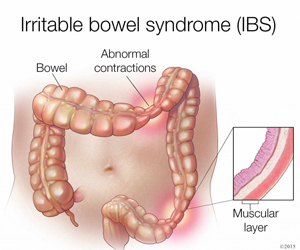Recent Posts
Breaking down acute and chronic pancreatitis

Simply put, pancreatitis is inflammation of the pancreas. Located behind the stomach in the upper abdomen, your pancreas produces digestive enzymes and hormones that regulate how your body produces sugar.
Pancreatitis is caused by the irritation and inflammation of the cells of your pancreas. This occurs when digestive enzymes released by the pancreas become active while still in the pancreas.
Pancreatitis can occur in two forms — acute and chronic.
Acute pancreatitis
More people experience an acute form of pancreatitis, which appears suddenly. Mild cases of pancreatitis can typically be resolved in days with treatment. Severe cases of acute pancreatitis can cause life-threatening conditions, such as kidney and lung failure.
Acute pancreatitis symptoms include:
- Severe upper abdominal pain
- Abdominal pain that extends to your back and shoulders
- Yellowing of the skin
- Tender abdomen
- Nausea and vomiting
- Fever
Treatment for acute pancreatitis consists of IV fluids and medication to manage pain. You can eat if tolerated, or tube feeding may be necessary. After getting your symptoms under control, identifying and treating the cause of your pancreatitis is the next step for your health care team.
Treating the cause
Once your pancreatitis is under control, your health care team will determine what caused the pancreatitis attack. Treatment depends on the cause.
Examples of treatment include:
- Removing bile duct stones
A procedure called endoscopic retrograde cholangiopancreatography, or ERCP, uses a long tube with a camera on the end to take pictures of your pancreas and bile ducts. This helps your health care team see if stones are blocking the bile duct. If so, the stones can be removed using tools passed through the endoscope. The bile duct and pancreatic duct enter the bowels in the same area. This is why a blockage of the bile ducts can cause pancreatitis. - Gallbladder surgery
If gallstones caused your pancreatitis — with or without bile duct blockage — your health care team may recommend surgery to remove your gallbladder. This procedure is a cholecystectomy. Surgery may be done before you go home if your attack is mild. In severe cases, surgery may be done later to let the inflammation go down. - Treatment for excessive alcohol use
Consuming several alcoholic drinks a day over many years can cause pancreatitis. If this is the cause of your pancreatitis, your health care team may recommend you enter a treatment program to help you stop. Continuing to drink alcohol may worsen your pancreatitis and lead to serious complications including chronic pancreatitis.
Chronic pancreatitis
Pancreatitis that occurs over many years can damage your pancreas and lead to chronic pancreatitis. It causes permanent damage and scarring of the pancreas. Chronic pancreatitis can lead to weight loss, pain, diabetes and pancreatic cancer.
Chronic pancreatitis symptoms include:
- Upper abdominal pain
- Indigestion
- Abdominal pain that worsens after eating
- Unexpected weight loss
- Oily, smelly stools called steatorrhea
- Jaundice, which is yellowing of the eyes and skin
- Development of diabetes
Treating chronic pancreatitis may involve changes to your diet, pain management, and taking enzymes to improve digestion.
Reducing the risk of pancreatitis
Some factors increase your risk of developing pancreatitis:
- Excessive alcohol use
- Cigarette smoking
- Obesity
- Diabetes
- Family history of pancreatitis
Talk with your health care team about sudden or persistent symptoms related to pancreatitis.
By Mayo Clinic Health System staff.




